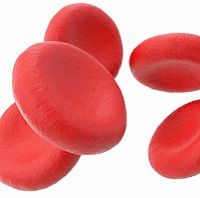Article
Disappointing Results from ACCELERATE Trial of CETP Inhibitor
Author(s):
Reportingg on a trial known as ACCELERATE, researchers said a powerful CETP inhibitor did not reduce cardiovascular events, despite having “Profound HDL-C raising and LDL-C lowering propertie

It may all be over for evacetrapib, a potent inhibitor of cholesteryl ester transfer protein (CETP).
Reporting on a trial known as ACCELERATE today at the American College of Cardiology’s 65th Scientific Session & Expo Stephen Nicholls, MC, MS, PhD, of the University of Adelaid, Royal Adelaide Hospital, in Australia said the drug did not reduce cardiovascular events, despite having “Profound HDL-C raising and LDL-C lowering properties.
“It’s not quite dead yet, there’s one more study of high-risk patients being done, but I’m skeptical,” Nicholls said, discussing the study with reporters this morning.
The study, a phase 3, multicenter randomized, double-blind trial involving 12,092 patients with either an acute coronary syndrome, cerebrovascular atherosclerotic disease, peripheral vascular disease or diabetes with coronary artery disease got evacetrapib or a placebo in addition to standard medical therapy.
The trial last 18 months.
The primary endpoint was time to first event of serious cardiac event or cardiovascular death.
The patients average age was 64, the average body mass index was 30.2 and most had a background history of coronary artery disease. Type 2 diabetes was seen in 63.7% of patients.
Nearly all (96.4% of patients) were treated with a statin at baseline.
The research showed that despite similar raising of HDL-C and lowering LDL-C as seen in prior studies of the drug, it did not rate cardiovascular events in high-risk vascular patients, despite demonstrating favorable effects on established cardiovascular biomarkers.
The study was funded by Eli Lilly, where Nicholls is a consultant.
The trial was terminated due to futility.





